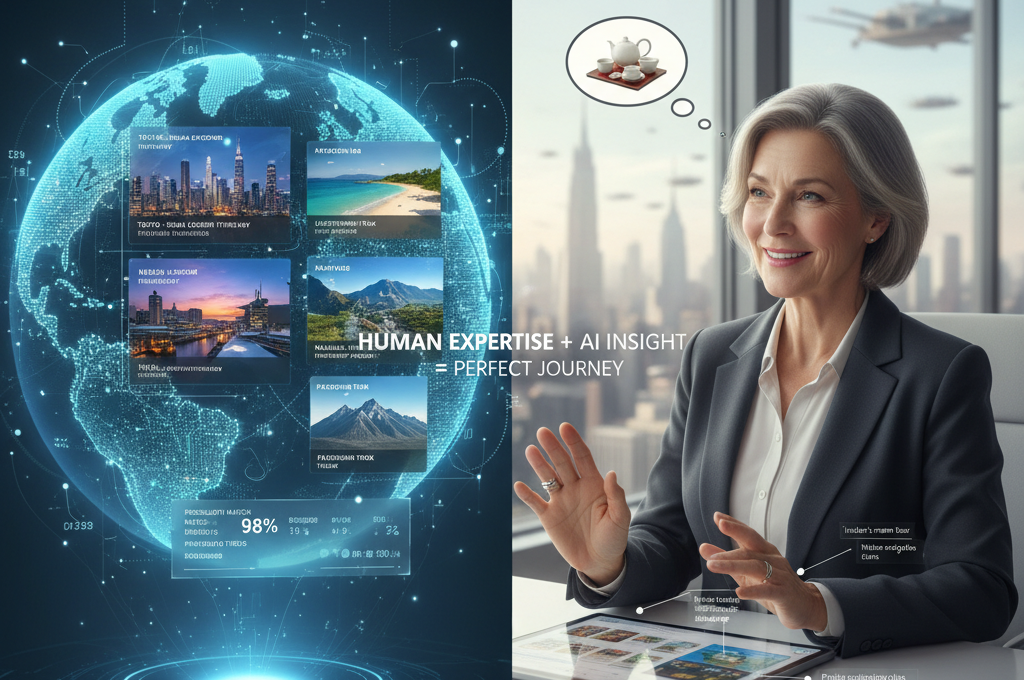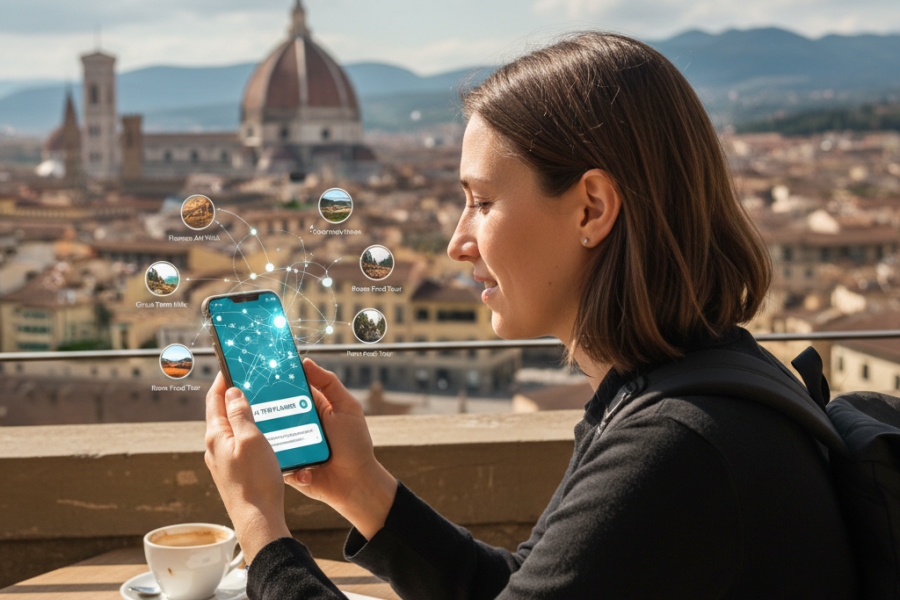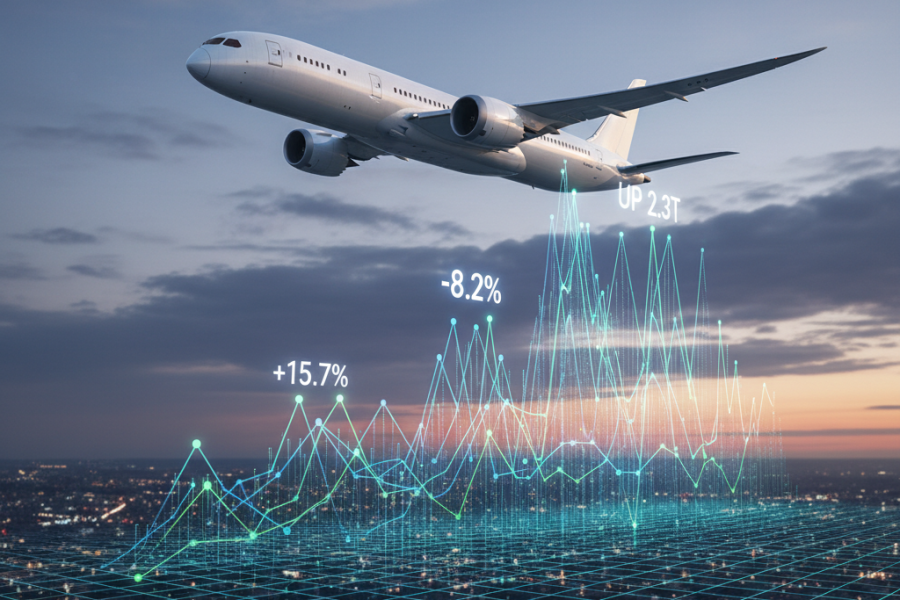A New Era for Travel Planning
The travel world is changing fast — and it’s not just about new destinations or cheaper flights. In 2026, artificial intelligence (AI) is transforming how people plan, book, and experience their trips.
But here’s the truth: AI isn’t replacing travel agents — it’s empowering them.
The future of travel isn’t human or machine — it’s both. The perfect combination of human intuition and AI precision is helping travellers make smarter, faster, and more personalized decisions than ever before.
How AI Is Transforming the Travel Industry
Artificial intelligence has quietly become the backbone of modern travel. From flight predictions to chatbots that answer your questions in seconds, AI in the travel industry is everywhere.
Here’s what it’s doing behind the scenes:
Smart itinerary planning: AI tools analyze millions of data points to recommend the best routes, hotels, and attractions.
Dynamic pricing: AI tracks flight and hotel prices, ensuring travellers book at the right time for the lowest rates.
Personalized recommendations: Based on your past trips and preferences, AI tailors vacation ideas just for you.
24/7 support: Chatbots powered by AI assist with real-time changes and instant updates, no matter where you are.
Example: AI might suggest a winter escape to Georgia based on your previous searches, preferred weather, and travel history — in seconds.
The Human Touch: Why Travel Agents Still Matter
While AI can analyze data, it can’t replace human empathy, creativity, and understanding. That’s why travel agents remain irreplaceable — especially when it comes to building meaningful, worry-free experiences.
Here’s what humans do best:
Understanding emotions: Travel is deeply personal. A human agent understands your excitement, your hesitation, and your dream destinations in ways a machine never can.
Handling the unexpected: Flight cancellations, medical emergencies, or special requests — human experts solve problems AI can’t predict.
Adding personalization: A travel agent can recommend that hidden café in Paris or that scenic route in Georgia — things an algorithm might miss.
Example: At FlyDivineTravels, agents combine AI data with years of experience to create packages that balance adventure, comfort, and culture.
The Perfect Partnership: AI + Human Expertise
The most successful travel companies in 2026 aren’t replacing their teams with robots — they’re integrating AI to work alongside them.
Here’s how the partnership works:
-
AI handles efficiency: Searching, comparing, and analyzing deals.
-
Humans add creativity: Customizing experiences based on traveller stories and emotions.
-
AI provides accuracy: Real-time updates on weather, visa rules, or local events.
-
Humans ensure trust: Offering reassurance, personal communication, and local knowledge.
Together, this balance creates the perfect travel ecosystem — fast, accurate, and human-centered.
Pro Tip: Think of AI as the assistant and your travel agent as the guide — together, they create a seamless journey from dream to destination.
Real Examples of AI-Human Collaboration in 2026
-
Predictive personalization: AI suggests travel options, and agents finalize details to match traveller preferences.
-
Virtual travel assistance: AI chatbots handle FAQs, while human agents manage complex itineraries.
-
Data-driven customization: Agents use AI insights (like traveller behaviour or seasonal demand) to design unique packages.
-
Smart marketing: Agencies use AI to understand what destinations are trending and offer curated promotions instantly.
The Future of the Travel Agent Role
By 2026 and beyond, the role of a travel agent will evolve — from booking facilitator to travel experience designer.
- Future agents will:
- Use AI dashboards to create faster itineraries.
- Focus on building emotional connections with clients.
- Offer expert insights on cultural authenticity and sustainability.
- Spend more time on creativity and less on manual research.
The travel agent of tomorrow won’t just plan a trip — they’ll curate a story that technology helps bring to life.
Wrapping Up: Smarter Together
In the evolving world of travel, AI and humans aren’t competitors — they’re co-pilots.
AI brings data, speed, and precision; humans bring emotion, experience, and empathy. Together, they redefine what “personalized travel” truly means.
So, as you plan your 2026 adventures with FlyDivineTravels, know that behind every smart suggestion, there’s still a human touch — ensuring every journey feels uniquely yours.






Leave a Comment